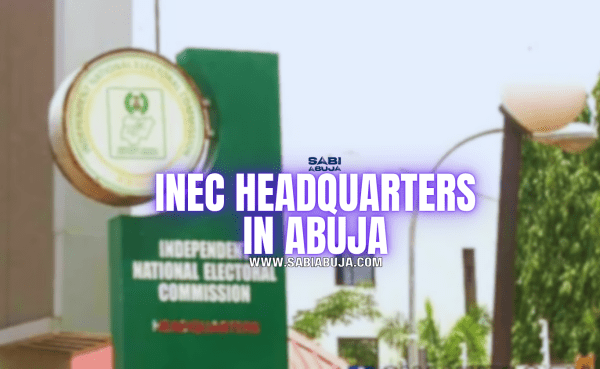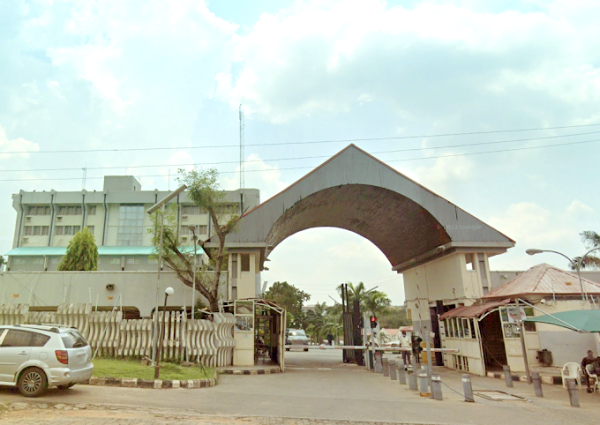
The Independent National Electoral Commission (INEC) stands as one of Nigeria’s most critical institutions, tasked with safeguarding the foundation of democracy through credible and transparent elections. As Nigeria’s democracy matures, so must the infrastructure that supports it. In a significant move to boost the commission’s capacity and operational efficiency, President Bola Ahmed Tinubu has officially flagged off the construction of a new annex for the INEC headquarters in Abuja.
This new development is not just a physical expansion, but a strategic investment in the democratic process, coming at a time when the nation’s electoral body is managing increasing operational responsibilities. Here’s everything you need to know about INEC’s current headquarters, the new annex project, and what it means for Nigeria’s democratic future.
INEC Headquarters in Abuja
The Current INEC Headquarters: Location and Limitations
INEC’s current national headquarters is located at Olusegun Obasanjo Way, Area 10, Garki, Abuja. This building, established in 1997, has served as the operational nerve center for Nigeria’s electoral processes for over two decades.

Originally designed to house 10 departments and about 500 staff, the structure has long outlived its capacity. Today, INEC operates 22 departments and directorates, and accommodates over 1,000 personnel, 13 National Commissioners, and the Chairman himself. The institution has grown significantly over time, both in structure and responsibility, especially with the increasing digitization of elections, logistics complexities, and growing public expectations for transparency and credibility.
The Maitama Annex: A Strategic Expansion
Recognizing the pressing infrastructural needs of INEC, President Bola Ahmed Tinubu flagged off the construction of a new INEC headquarters annex in Maitama, Abuja. The groundbreaking ceremony, held in June 2025, was part of the Federal Capital Territory Administration’s (FCTA) activities commemorating President Tinubu’s second year in office.
The new site, located in Maitama District, sits on a 1.5-hectare plot and is expected to serve as a multi-functional space designed to complement the operations of the existing headquarters. The Maitama district is a strategic location, it’s secure, easily accessible, and home to many federal institutions and embassies, enhancing the symbolic and operational value of INEC’s new space.
Key Features of the New INEC Annex
According to FCT Minister Nyesom Wike and INEC Chairman Professor Mahmood Yakubu, the new annex will feature:
-
A 5-storey building with basement parking.
-
A 1,000-seat auditorium for stakeholder meetings, press briefings, and training workshops.
-
An ICT hub tailored to support INEC’s Election Monitoring and Support Centre (EMSC).
-
A media centre equipped for real-time election coverage and communications.
-
A dedicated library and electoral history museum to document and preserve Nigeria’s democratic journey.
-
Multiple conference and training rooms for internal development and external engagement.
The Groundbreaking Ceremony: What Leaders Had to Say
During the flag-off ceremony, President Tinubu emphasized the symbolic and practical importance of the new INEC annex:
“This building is not merely about bricks and mortar. It is about building the future of our democracy. It is about the strength of our institutions and the transparency of our electoral process”.
President Tinubu also commended FCT Minister Wike for pushing the project forward and reaffirmed his administration’s support for institutional independence.
INEC Chairman Professor Mahmood Yakubu echoed the sentiment, expressing deep appreciation to the federal government and the FCTA:
“This is the third major infrastructural intervention for INEC since 1991. It addresses a long-standing challenge we have faced. This annex will greatly enhance our coordination and planning ahead of future general elections.”
Minister Wike, in his remarks, confirmed that the Federal Executive Council (FEC) had approved the project earlier in March 2025. He assured Nigerians that the project will be delivered within the lifetime of this administration, targeting completion before 2027, ahead of the next electoral cycle.
Why the New INEC Annex Matters
1. Operational Efficiency
A purpose-built annex will allow INEC to centralize key departments and reduce dependence on rented offices. This enhances collaboration and streamlines workflows during both election and non-election periods.
2. Electoral Technology and Innovation
With growing emphasis on digital infrastructure, like the Bimodal Voter Accreditation System (BVAS) and IReV—INEC needs space to host data centers, monitoring teams, and tech experts. The new ICT hub will make these processes more seamless and secure.
3. Capacity Building
The inclusion of training centers and an auditorium supports INEC’s goal of regularly training staff, stakeholders, and ad hoc personnel ahead of elections.
4. Public Engagement and Transparency
Facilities like the media center and electoral museum will foster public understanding and trust in the electoral process. It also offers a platform for civic education, electoral history preservation, and stakeholder collaboration.
5. Support for Electoral Independence
By expanding INEC’s physical and technological capacity, the federal government reinforces the commission’s autonomy and strengthens public perception of its impartiality and effectiveness.
Summary
| Feature | Details |
|---|---|
| Current HQ | Olusegun Obasanjo Way, Area 10, Garki, Abuja |
| New Annex Location | Maitama District, Abuja |
| Size | 1.5 hectares |
| Building Type | 5-storey + basement |
| Facilities | Auditorium, ICT hub, media center, conference rooms, electoral museum |
| Flagged Off | June 2025 by President Bola Ahmed Tinubu |
| Completion Target | By 2027 |
| Lead Agencies | INEC, FCTA, FCDA |
| Key Officials | President Tinubu, Prof. Mahmood Yakubu, Minister Nyesom Wike |
Frequently Asked Questions About INEC Headquarters in Abuja
1. Where is the current INEC headquarters located?
The current national headquarters of the Independent National Electoral Commission (INEC) is located at: Olusegun Obasanjo Way, Area 10, Garki, Abuja, Nigeria.
2. What is the purpose of the INEC headquarters?
The INEC headquarters is the administrative and operational center for managing Nigeria’s elections. It houses national commissioners, directors, and key departments responsible for:
-
Election planning and logistics
-
Voter registration and verification
-
Electoral legal affairs
-
ICT and data management
-
Public outreach and media communication
3. Why is a new INEC headquarters annex being built?
The current headquarters, built in 1997, was designed for around 500 staff and 10 departments. Today, INEC operates with:
-
Over 1,000 staff
-
22 departments and directorates
-
A growing reliance on digital infrastructure
The new annex in Maitama is being constructed to address space limitations, enhance efficiency, and provide modern facilities for Nigeria’s increasingly complex electoral operations.
4. Where is the new INEC annex located?
The new annex is located in Maitama District, Abuja, a high-security, administrative zone that houses many federal institutions and embassies. The specific site is a 1.5-hectare parcel of land near Zambezi Crescent.
5. Who flagged off the construction of the new INEC headquarters annex?
The construction was officially flagged off by President Bola Ahmed Tinubu in June 2025 as part of events marking his second year in office. The project is being executed under the supervision of the Federal Capital Territory Administration (FCTA), led by Minister Nyesom Wike.
6. What are the key features of the new INEC annex?
The new INEC annex will include:
-
A 5-storey building with basement parking
-
A 1,000-seat auditorium
-
An ICT and election monitoring hub
-
Media and communication center
-
Electoral history museum and library
-
Modern conference and training rooms
Final Thoughts
INEC’s new headquarters annex project is more than a government infrastructure initiative, it is a long-overdue investment in Nigeria’s democratic future. It addresses the physical limitations that have hindered INEC’s operations and reaffirms the country’s commitment to electoral integrity and transparency.

Leave a Reply